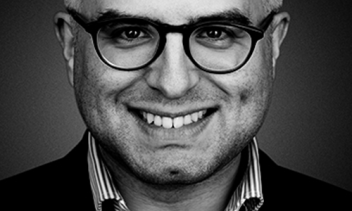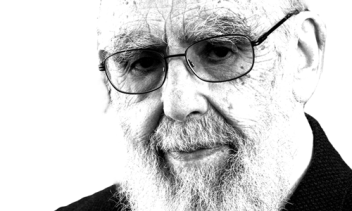The Fresh
Our favorite reads for this weekend.
This past week, we spoke with Dr. Moshe Koppel about halacha as a language. If you want more of Dr. Koppel’s fascinating thought, check out his classic piece, “Yiddishkeit Without Ideology: A Letter To My Son,” a timely and moving meditation on Jewish life. Here’s our favorite part of the article:
Ultimately, despite my occasional bouts of cynicism, the message I want to leave you with is a perfectly corny one and it is this: Always remember that Mommy and I are passing you a small flickering flame that we received from our parents as they did from theirs. If you ignore it, if you smother it, if you fiddle with it, it will be extinguished. But if you sit by it and tend to it carefully, if you know when to guard it jealously and when to give it air, if you wander occasionally into the nearby forest and bring back healthy wood-then this small flickering flame will not only warm and light your dark winter nights, but it will be the legacy that you pass on to your children as they will to theirs.
Is halacha a part of our organic, this-worldly life, or something apart? In a different key, we might wonder if halacha is immanent or transcendent, a part of life or something apart. Two different timeless articles react to this question, each in their own way. The first is the great Jewish poet, Hayim Nahman Bialak’s classic Halacha and Aggadah, a profoundly beautiful piece of writing that analyzes the relationship between narrative and law in the Talmud. Pair this with Robert Covers’ somewhat more dry, but equally timeless, Nomos and Narrative and you’ll be covered for the weekend.
That Jews are even arguing about the boundaries of Talmudic interpretation is a comforting indication of the Talmud’s continued relevance for American Jewry.
And just for fun, we’ll include this: do you ever think about the development of the Jewish consciousness, and have a special place in your heart for names like Jung, Neuman, and Scholem? If so, check out “Hasidism, Jung, and the Jewish Spiritual Crisis” over at the Jewish Review of Books. Come for the archetypes, stay to hear about the JRB going independent from its parent organization, Tikvah. What would Jung say about that? Why do we lose friends, and what can we learn from those losses? In this deeply thought-provoking article in The Atlantic, Jennifer Senior offers reflections on mortality, friendship, and how we deal with the business of life and friendship converging and diverging.
The Fleisch
In which we discuss the latest ongoings in the Jewish world of tea, bringing you the best and brightest of the latest controversies that have us thinking.
Are there boundaries for who gets to get excited about the Talmud? What does the future hold? Miriam Anzovin’s daf yomi reaction videos have been gaining attention for their humor, pop appeal, and engagement with the Torah, but some rabbis disagree.
Rabbi Efrem Goldberg, writing for rabbiefremgoldberg.org, wonders if “our Torah [is] being used as just another vehicle to entertain and to compete for attention and popularity,” warning us about appreciating the Torah of someone who identifies as an atheist. Rabbi Aryeh Lebowitz at YU Torah concurs, seeing in Anzovin’s reaction videos none of the awe and reverence that he sees as crucial to the study of Torah, reminding us to approach the Torah with dignity and respect.
On the other side of the debate, we have Ari Lamm, who in an earlier thread on Twitter, argues that the differing perspectives on the question of access to Talmud hinges upon an older question about the function of a Jewishly educated peoplehood. In his words: ”in order to wield positive influence as a people, we can’t just have individuals (or pockets of them) who know our values. We need our whole people to embody them. In other words: we need a broad-based Jewish culture.” In The Times of Israel, David Zvi Kalman sees the irreverence of Anzovin’s videos as a new face of an ancient form of critical engagement with Jewish sources, and argues that her videos are “not marginal,” but “the future.”
Chiming in from the side, David Bashevkin cheers along the discussion, reminding us that “taking ownership of your Jewish heritage is good,” as is “sincere concern about the sanctity of our tradition,” and that above all, “respectful debate is good.” For Tablet, Bashevkin comments:
Whichever side one finds themselves in this debate, it’s hard not to appreciate the Talmudic quality of this modern-day argument. That Jews are even arguing about the boundaries of Talmudic interpretation is a comforting indication of the Talmud’s continued relevance for American Jewry.
Who is right? What do you think? Let us know!
The Feedback
In which we share our favorite feedback from friends this week.
This email got us thinking this past week:
Hello 18Forty,
I’m loving the halakha topic, and what I would really love to hear more about is how we choose between opinions within the halakhic tradition. Often, in making halakhic decisions, we are balancing competing super-values and making judgments about which ones to prioritize. I spoke last Shabbos to another baal teshuva about how he has seen many families destroyed because a BT asked the wrong rabbis for a psak, and the chumras were not adequately being weighed against the particular context of the individual’s background. I would love to hear more about how rulings can differ based on individual situations.
Kind regards,
Redacted
And last but never least, this tweet took our heart. More of this.

If you have any thoughts, comments, concerns, or tunes that you’d like to share with us, reach out at info@18forty.org. We’d love to hear from you.








